Products » Hand Care
Hand Care
-
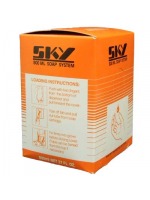 Sky Hand Cream
Sky Hand Cream
-
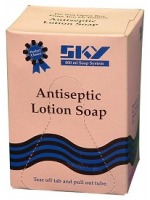 Sky antiseptic hand ...
Sky antiseptic hand ...
-
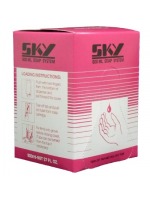 Sky Lotion Soap 800 ...
Sky Lotion Soap 800 ...
-
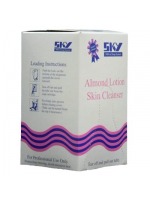 Sky Almond Skin Clea...
Sky Almond Skin Clea...
-
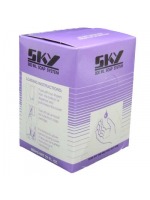 Sky Action hand sani...
Sky Action hand sani...
-
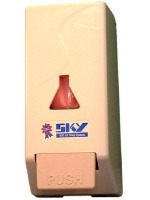 Sky Dispenser
Sky Dispenser
-
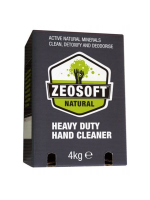 Zeosoft Heavy Duty
Zeosoft Heavy Duty
-
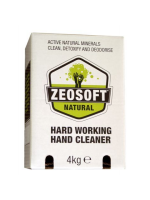 Zeosoft Hardworking
Zeosoft Hardworking
-
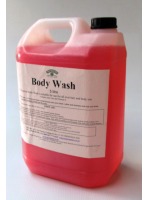 Pro Nature Body Wash
Pro Nature Body Wash
-
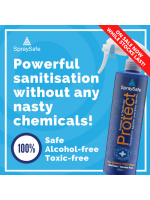 SpraySafe PROTECT
SpraySafe PROTECT
-
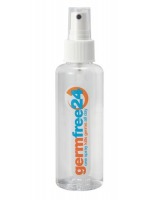 Germfree 24
Germfree 24
-
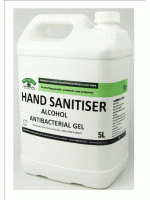 Hand Sanitiser
Hand Sanitiser
-
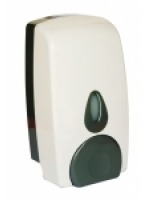 AZ800 ml dispenser
AZ800 ml dispenser
-
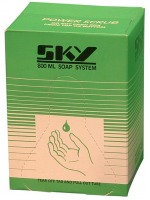 Sky Power Scrub
Sky Power Scrub
-
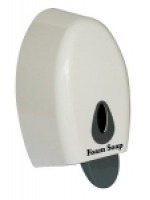 AZ foam soap disp...
AZ foam soap disp...
Give your hands a break
Many of us simply take our hands for granted. It is not until our hands start to cause us troubles that we start to do anything about taking care of them.
It is important that we not only wash our hands correctly, but also ensure that they are also protected against products, which can do damage to them. Stop the spread of disease. Colds, flu and infections are most commonly spread through dirty hands.
So, remember to wash your hands after handling rubbish or chemicals; before and after using the toilet; after coughing, sneezing or blowing your noise; and before and after eating, drinking or smoking. You are the single biggest defence against the spread of disease and infections.
Choose the correct product
Each person's occupation produces its own type of dirt. For example, a mechanic will need a heavier duty hand cleaner than an office worker. Those working in the medical field will need an anti-bacterial hand cleaner. It is important to determine the correct product for the best results.
What product should I use?
Hand cleaners
Lotion soaps
For general hand washing. Restrooms
Antiseptic lotion soap
For general hand washing where an antiseptic quality is required. food preparation
Hand sanitiser
Used as an after wash sanitiser to sterilize hands without the need of water, or in situation where access to water is not available. all areas requiring sanitisers
Industrial hand cleaners
Heavy-duty hand cleaner used on hands, which have simply more than surface soils eg. Oils and grease. Workshops
Skin protectants
Barrier creams
Used to protect hands against products that could damage the skin. Workshops
Hand creams
These assist in the replenishment of moisture lost from the skin and also help heal damaged skin. All areas.
From liquid hand soaps, foaming hand soaps, to heavy duty work soaps, Pro Nature has a solution for your work place.
Call us now for a consultation of your business requirements.
How Germs Spread
The main way that illnesses like colds and flu are spread is from person to person in respiratory droplets of coughs and sneezes. This is called "droplet spread."
This can happen when droplets from a cough or sneeze of an infected person move through the air and are deposited on the mouth or nose of people nearby. Sometimes germs also can be spread when a person touches respiratory droplets from another person on a surface like a desk and then touches his or her own eyes, mouth or nose before washing their hands. We know that some viruses and bacteria can live 2 hours or longer on surfaces like cafeteria tables, doorknobs, and desks.
How to Stop the Spread of Germs
In a nutshell: take care to
- Cover your mouth and nose when you sneeze
- Clean your hands often
- Remind your staff to practice healthy habits, too
Cover your mouth and nose when coughing or sneezing
Cough or sneeze into a tissue and then throw it away. Cover your cough or sneeze if you do not have a tissue. Then, clean your hands, and do so every time you cough or sneeze.
The "Happy Birthday" song helps keep your hands clean?
Not exactly. Yet we recommend that when you wash your hands -- with soap and warm water -- that you wash for 15 to 20 seconds. That's about the same time it takes to sing the "Happy Birthday" song twice!
Alcohol-Based Hand Wipes and Gel Sanitizers Work Too
When soap and water are not available, alcohol-based disposable hand wipes or gel sanitizers may be used. You can find them in most supermarkets and drugstores. If using sanitiser, rub your hands until your hans are dry. The sanitiser doesn't need water to work; the sanitiser in it kills the germs on your hands.* (hand sanitisers)
* Source: FDA/CFSAN Food Safety A to Z Reference Guide, September 2001: Handwashing .
germs and children in schools
 Source: Am J Infect Control 2000;28:340-6. |
Remind children to practice healthy habits too, because germs spread, especially at school.
The flu has caused high rates of absenteeism among students and staff in our country's 119,000 schools. Influenza is not the only respiratory infection of concern in schools -- nearly 22 million schools days are lost each year to the common cold alone. However, when children practice healthy habits, they miss fewer days of school.
School administrators, teachers and staff: See Preventing the Spread of Influenza (the Flu) in Schools for CDC interim guidance.
More Facts, Figures, and How-Tos
CDC and its partner agencies and organizations offer a great deal of information about handwashing and other things you can do to stop the germs that cause flu, the common cold, and other illnesses. See Other Resources and Posters on this Stop the Spread of Germs site for a select listing of Web sites, materials, and contact information.
